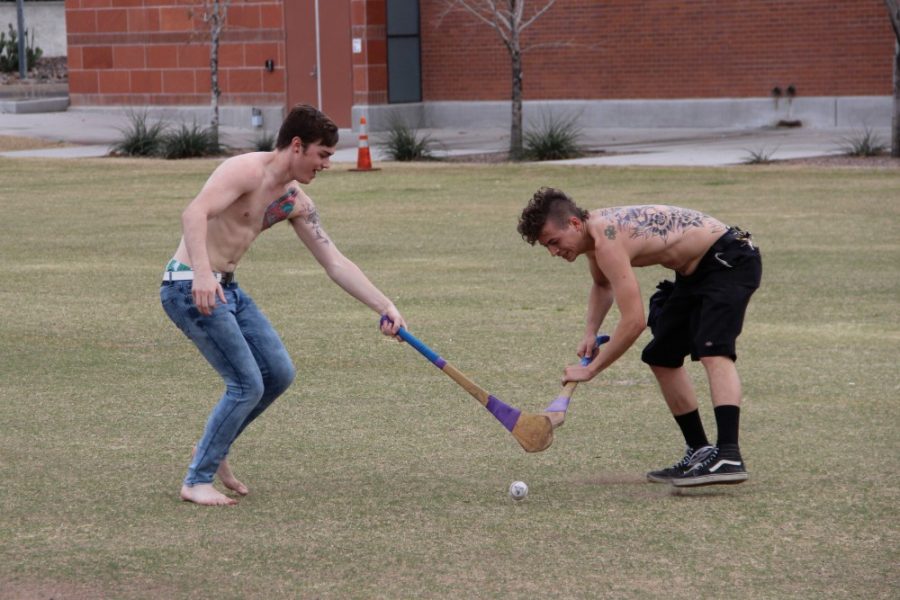For those who didn’t get enough Irish pride during St. Patrick’s Day, hurling, a sport dating back to almost 2,000 years ago, is picking up steam on campus.
A small group of students have been using the UA Mall to hone its hurling skills two or three times a week, with the ultimate goal of someday fielding a full team.
Played on a large grass field, each player uses a flat wooden club called a “hurley” to hit a ball called a sliotar (pronounced “slitter”), which resembles a baseball with inside-out stitches.
The object of the game is to hit the ball into a goal shaped like an “H.” If the ball goes through the upper portion of the goal, it’s worth one point; if it goes into the soccer-style net below, it’s worth three points.
“There is something awfully satisfying about smacking a hard round object with a stick,” said Kellner Brown, a classics senior who learned the game as a child, while living in Ireland. “It’s like playing catch with baseball bats.”
That’s just practice, though. Brown said the speed of real game play is significantly faster.
As opposed to games like football and basketball, in which every play is subject to myriad rules and regulations, hurling allows more freedom in terms of game play. Players can bat, kick, slap and even carry the sliotar briefly in their hand, or indefinitely on their hurley.
Isaiah Bruno, a mechanical engineering junior, picked up hurling while studying abroad in Ireland and said it is a unique sport.
“It’s really free,” Bruno said. “It’s hard to find a sport that has so little rules.”
One of the few rules dictates that a player cannot hit another player with his hurley as little protective equipment is worn during games. Bruno said he had some close calls with swinging hurleys, but added that it’s not as dangerous as it looks.
“People kind of tone it down because no one wants to get smacked with a stick,” Bruno said.
The group has hopes of hosting a regulation game, which requires 15 players on a team.
“It’s our dream to get a full game going, maybe even make it an intramural thing,” said Matt Coope, a pre-pharmacy junior.









